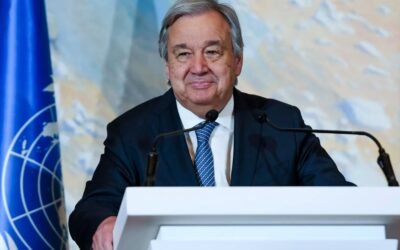In 2025, the Middle East is undergoing a profound geopolitical transformation. The Iran-Saudi détente and the normalization of relations between Israel and several Arab nations are reshaping regional alliances. Amidst this evolving landscape, Pakistan finds itself navigating a delicate diplomatic balancing act, striving to maintain its relationships with key Arab partners while addressing the complexities of its stance on Iran and Israel.
Iran-Saudi Détente: A Shifting Regional Dynamic
On March 10, 2023, Iran and Saudi Arabia announced the resumption of diplomatic relations after a seven-year hiatus. This breakthrough was achieved through a dialogue process spearheaded by China, marking a significant shift in regional dynamics. For Pakistan, this development holds both opportunities and challenges. Historically, Pakistan has maintained close ties with Saudi Arabia, providing extensive support, arms, and training for the Saudi armed forces. Simultaneously, Pakistan shares cultural and religious affinities with Iran, and the two nations have cooperated on various fronts, including energy and border security.
You May Like To Read: Prime Minister Modi to Visit China Amid US Diplomatic Tensions
The Iran-Saudi rapprochement necessitates a nuanced approach from Pakistan. While Islamabad welcomes the restoration of ties between its regional neighbors, it must carefully manage its relations with both Tehran and Riyadh to avoid alienating either side. This balancing act is further complicated by Pakistan’s strategic interests and alliances, including its partnerships with the United States and China.
Normalization of Israel: A Delicate Stance
The normalization of relations between Israel and several Arab nations, initiated by the Abraham Accords in 2020, has prompted discussions about the potential for similar agreements involving Pakistan. However, Pakistan’s position remains firmly aligned with its longstanding policy of not recognizing Israel until a resolution to the Palestinian issue is achieved. Minister of Religious Affairs Sardar Muhammad Yousaf declares Israel an “illegal state,” during a meeting with Palestinian envoy Dr. Zuhair Muhammad Hamdallah Zaid.
This stance is deeply rooted in domestic sentiments, as the Pakistani public remains staunchly pro-Palestinian. Any move towards normalization with Israel faces significant opposition from political and religious groups, making such a shift politically perilous.
Pakistan’s Strategic Calculus
Pakistan’s foreign policy in 2025 is characterized by a strategic silence, an approach that emphasizes cautious diplomacy and selective engagement. This strategy allows Pakistan to maintain its traditional alliances while avoiding entanglement in the complex web of Middle Eastern geopolitics. The United States, under President Donald Trump’s administration, has sought to strengthen ties with Pakistan, particularly in the context of countering Iran’s influence in the region. However, Pakistan’s support for Iran amid the Israel-Iran conflict has strained its relations with Washington.
At the same time, Pakistan’s deepening relationship with China introduces another layer of complexity. China, a rising global power with vested interests in maintaining stability across Asia and the Middle East, has become an increasingly important partner for Pakistan. This relationship, rooted in economic, defense, and strategic collaboration, gives Pakistan an additional diplomatic cushion, allowing it to engage with global powers in a manner that aligns with its own national interests, without fully committing to the ideological divides that are driving much of the regional conflict. As a result, Pakistan’s foreign policy reflects a pragmatic, multi-faceted approach that prioritizes long-term strategic autonomy over short-term gains.
You May Like to Read: Pakistan’s Foreign Policy in a Multipolar World
Pakistan’s Principled Stand in a Changing Middle East
At the core of Pakistan’s strategy is a commitment to safeguarding its national interests while maintaining the delicate balance between ideological and strategic relationships. Despite immense pressure, particularly from global powers and shifting regional alliances, Pakistan has refrained from prematurely engaging in the new wave of normalization with Israel, staying loyal to its pro-Palestinian stance. This commitment resonates deeply with the masses in Pakistan, for whom the issue of Palestine is an inextricable part of national identity and solidarity with the Muslim world.
While many may criticize Pakistan’s reluctance to pivot towards Israel like other Arab states have, this resistance reflects a broader, more nuanced diplomatic vision. Pakistan’s support for Iran, despite the shifting geopolitical realities of the region, remains a pillar of its foreign policy, driven by a complex mix of religious affinity, shared security concerns, and economic cooperation. By not rushing into normalization with Israel, Pakistan ensures that its core values, centered on support for Palestine, remain intact, thereby retaining credibility both at home and across the broader Muslim world.
Concluding
As the Middle East continues to evolve, Pakistan’s strategic silence serves as a testament to its adeptness in navigating a multifaceted diplomatic landscape. By carefully balancing its relationships with Iran, Saudi Arabia, and Israel, Pakistan aims to safeguard its national interests while contributing to regional stability. In this era of shifting alliances and emerging partnerships, Pakistan’s approach underscores the importance of nuanced diplomacy in maintaining influence and fostering peace in a turbulent region.




























